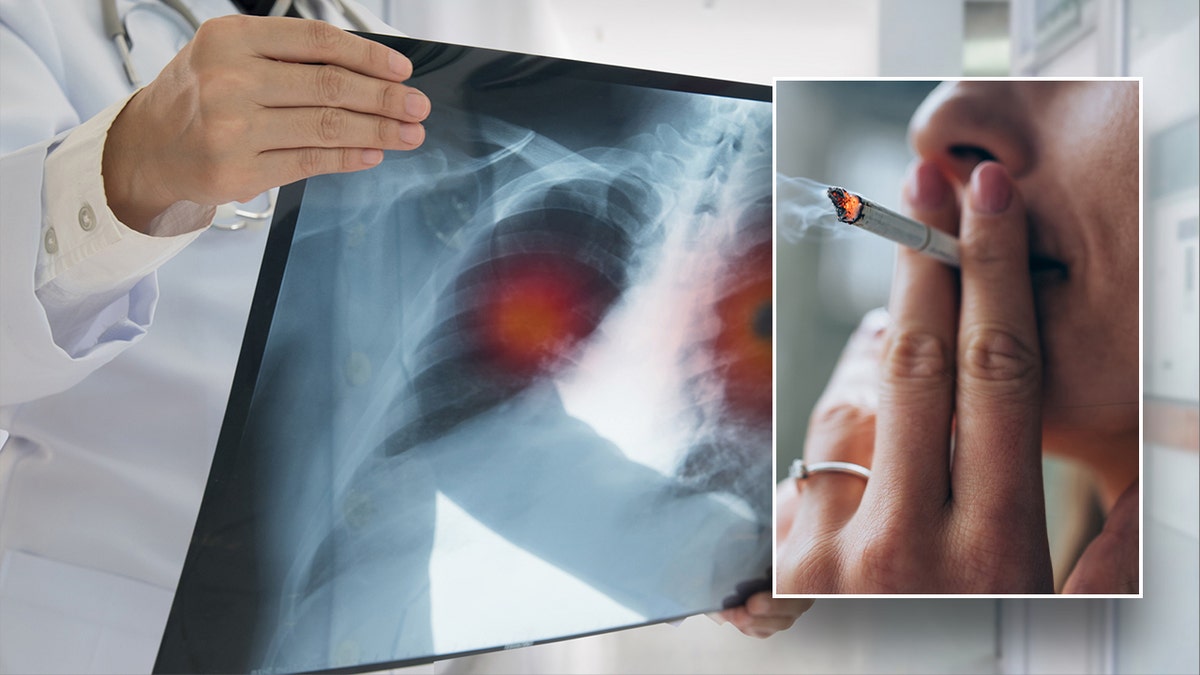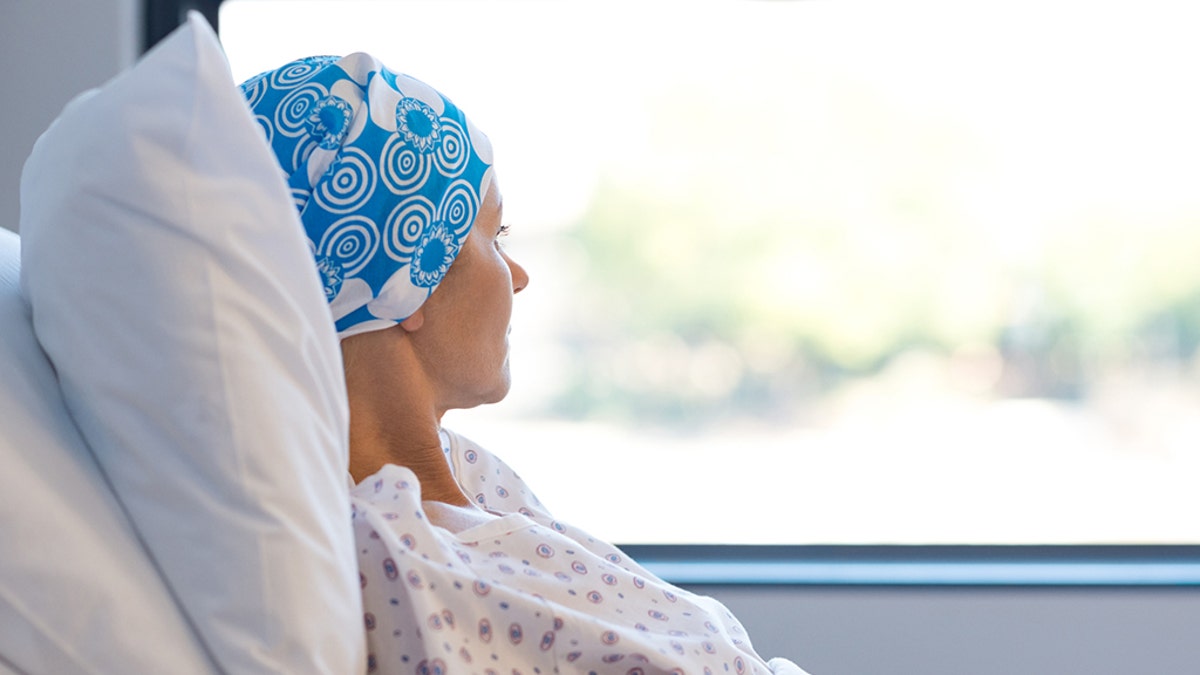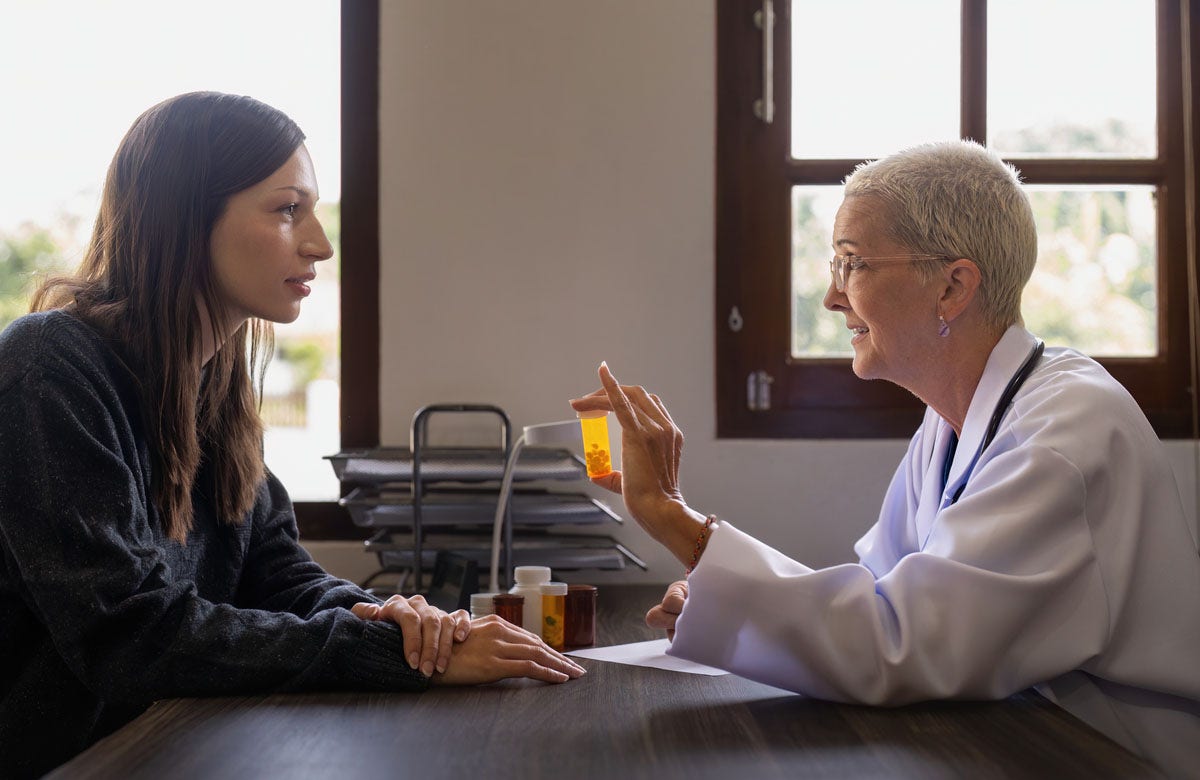Health
Travel Insurance: What It Covers and When to Buy It

In the wake of Covid, travel insurance sales have spiked with the rebound in travel as people seek to protect their investments against flight delays and cancellations, extreme weather events and the persistence of the virus. But travel insurance is complicated with a range of benefits, inclusions and prices. Here’s what you need to know before you buy.
Know what’s covered
Generally speaking, travel insurance covers unforeseen events, like an illness in the family, the loss of a job or a natural disaster, that force you to cancel or interrupt a trip. It can also apply in the event of a strike at a transportation company, a terrorist attack in your destination or when your travel provider goes bankrupt. These are known as covered reasons. Most polices also include medical coverage, which is useful abroad where your health insurance may not cover you.
While policy prices vary based on age, length of travel and type of coverage, expect to pay between 4 to 10 percent of your entire trip cost to get insured.
Insure nonrefundable expenses
Travel insurance was designed to protect expenses you can’t get back any other way when things go wrong. Think of nonrefundable Airbnb reservations or the cost of a cruise to the Galápagos.
If your hotel is refundable and you can get the value of your flights back in credits, you can skip travel insurance.
Buy close to booking
Travel insurers say the best time to buy travel insurance — which usually takes effect within a day of purchase — is just after making your travel plans to have the largest possible coverage window. A lot can happen between booking a Christmas market cruise in Europe in June and going in December.
With many plans, purchasing travel insurance 10 to 14 days from your first trip payment entitles you to “early purchase” benefits such as a waiver for pre-existing medical conditions that impact travel. If such a waiver is included, it is usually prominent in a summary of benefits, so read it carefully.
“Not all plans have a pre-existing condition waiver,” said Suzanna Morrow, the senior vice president of InsureMyTrip.com, an online insurance marketplace. “If I have a heart condition and if something occurs, I don’t want it excluded, so I would need to buy a policy within 14 days of the first dollar spent.”
Hedge against the weather
You can’t control the weather, but you can insure against its unexpected disruptions. For example, if you’re ready to jump on great rates in the Caribbean during the height of hurricane season, buy your insurance immediately after booking so that if a hurricane develops and your destination is evacuated, you’ll be covered.
“That’s probably the biggest use case for travel insurance,” said Stan Sandberg, a co-founder of TravelInsurance.com, an online marketplace. He counsels travelers to buy early — if you wait and the storm is named it will be too late to insure against it, because it is no longer an unforeseen event.
Similarly, with winter travel, if you’ve purchased nonrefundable ski lift tickets and a storm prevents you from reaching the resort, you may be able to claim the unused portion of your ski pass.
This coverage may prove more valuable as climate change exacerbates weather events like hurricanes and tornadoes, which are considered “natural disasters” and are covered by most policies.
Pick up the phone
With the proliferation of automated insurance offers when you buy airline tickets or tours, travel insurance can feel like a one-size-fits-all product. It is not. Many policies, for example, exclude extreme sports like skydiving and mountain climbing, though there are specialty policies that include them.
If you have a specific concern — a family member is sick or you’re going heli-skiing — the best way to know if a travel insurance policy will cover you is to call an insurer or the help line at a travel insurance marketplace to get advice.
“Tell them the what-if scenario and then you can get professional and accurate advice,” Ms. Morrow said. “Thinking you’re covered and then having your claim denied is salt in the wound.”
Travel insurance does not cover ‘unpleasantries’
What if you’re dreading spending a week in an unairconditioned rental in England during a heat wave and decide you don’t want to go? Most standard travel insurance will not cover a change of heart.
“Travel insurance doesn’t cover you for unpleasantries,” said Carol Mueller, the vice president of strategic marketing at Berkshire Hathaway Travel Protection.
A policy upgrade, Cancel For Any Reason coverage, which is not available in every state, will cover a change of heart, usually up until a few days before departure. Most only reimburse 50 to 75 percent of your costs and the purchase must be made within weeks of your initial trip payment. It will bump your insurance premium up 40 to 50 percent, according to the insurance marketplace Squaremouth.com, which only recommends C.F.A.R. for travelers with specific concerns not included under covered reasons for trip cancellation.
A relatively new twist in trip protection, Interruption For Any Reason, works like C.F.A.R. in that it reimburses a portion of your expenses and can be invoked if you decide to bail while you’re on a trip for a reason that isn’t covered by standard trip insurance. Normally, you must buy it within weeks of your initial trip payment and be 72 hours into a trip before you can use it.
Keep records
If something goes wrong and you need to make a claim, you’ll need proof in the form of a paper trail. That could be receipts for clothing you purchased when your bags went missing, a hotel room required when your flight was canceled (along with flight cancellation notices from the airline) or a doctor’s note stating that you have Covid — or another illness — and are unable to travel. (With Covid, a positive test taken at home is not considered official documentation for the purposes of a claim.)
Resist pressure to buy flight insurance
When purchasing an airline ticket online, most carriers offer travel insurance to cover the cost with some version of vaguely menacing language like, “Do you really want to risk your investment?” when you decline.
Don’t fall for it. You may want to insure that ticket, but price out the policy elsewhere. A recent offer to insure a $428 flight for nearly $28 on an airline website cost $12 to $96 with a range of options at InsureMyTrip.com.
The $12 option was closest to the airline’s offer. Caveat emptor.

Health
Drinking alcohol is linked to six types of cancer, experts say: ‘It’s toxic’

It’s long been known that no amount of alcohol is good for the body — and now new research spotlights the potential harm it can cause.
More than 5% of all cancer cases are caused by drinking alcohol, according to the Cancer Progress Report 2024 from the American Association for Cancer Research (AACR).
Among the modifiable risk factors for cancer, alcohol is the third biggest, behind obesity (7.6% of cases) and cigarette smoking (19.3%).
TO REDUCE CANCER RISK, SKIP THE ALCOHOL, REPORT SUGGESTS
“Excessive levels of alcohol consumption increase the risk for six different types of cancer, including certain types of head and neck cancer, esophageal squamous cell carcinoma, and breast, colorectal, liver and stomach cancers,” said Rajarshi Sengupta, PhD, lead author of the AACR Cancer Progress Report 2024, in a statement sent to Fox News Digital.
More than 5% of all cancer cases are caused by drinking alcohol, according to the Cancer Progress Report 2024 from the American Association for Cancer Research. (iStock)
“Further, research shows that alcohol intake at an early age can increase the risk of cancer later in life.”
Based on these findings, limiting or eliminating alcohol can reduce the risk of developing alcohol-related cancers by 8% and the risk of all cancers by 4%, the report noted.
Addiction expert warns of risks
There has been a “roller coaster of information” about whether alcohol is harmful, according to addiction psychiatrist Dr. Adam Scioli of Caron Treatment Centers in Pennsylvania.
“There have even been reports for years that it could be beneficial for one’s health — but we know now that alcohol ingestion is one of the modifiable risk factors for cancer,” Scioli, who is not affiliated with AACR, told Fox News Digital.
‘DOES SMARTPHONE EXPOSURE CAUSE BRAIN CANCER?’: ASK A DOCTOR
Around 75,000 Americans each year are diagnosed with a cancer that is linked in some way to alcohol use, according to Scioli.
The more someone drinks — both in volume and frequency — the higher the risk, he warned.

Among the modifiable risk factors for cancer, alcohol is the third biggest, behind obesity (7.6% of cases) and cigarette smoking (19.3%). (iStock)
“Alcohol is a toxin,” Scioli said.
“We’ve long known that it impacts any number of organs, essentially starting with the brain and working its way down to the colorectal system.”
Is there a ‘safe’ amount?
Moderate alcohol use is defined as one drink or less in one day for women.
For men, it is two drinks or fewer per day, according to the Centers for Disease Control and Prevention (CDC).
“We’ve long known that alcohol impacts any number of organs, starting with the brain and working its way down to the colorectal system.”
“Drinking alcohol in moderation may increase your overall risks of death and chronic disease,” the agency stated on its website.
“Even low levels of alcohol use (less than one drink per day) can raise the risk of certain cancers.”
Scioli agreed, emphasizing that “we can definitely say there’s no added health benefit to ingestion of alcohol.”
“The line between safety and danger is debatable, and is different for each person.”
While risk factors like tobacco use are widely known, public awareness about the link between alcohol and cancer is still low, according to Sengupta.

Moderate alcohol use is defined as one drink or less in one day for women, and two drinks or fewer for men, per the CDC. (iStock)
Most Americans (51%) are not aware that alcohol increases cancer risk, per AACR data.
“It’s been flying under the radar for far too long — especially given the number of Americans who have met the criteria for alcohol use disorder, which is around 29 million Americans in 2023,” said Scioli.
What needs to change?
The good news, according to Scioli, is that with modifiable risk factors like alcohol, reducing the intake decreases the risk.
CLICK HERE TO SIGN UP FOR OUR HEALTH NEWSLETTER
As the report stated, those who are successful in decreasing their drinking or abstaining below those moderate risk levels will see a risk reduction in overall cancers, he noted.

Around 75,000 Americans each year are diagnosed with a cancer that is linked in some way to alcohol use, an expert said. (iStock)
“We need to do a much better job of making the public aware of the risks inherent in drinking — particularly moderate to heavy drinking,” Scioli said.
“And we need to make the public aware that there are mechanisms by which they can access help if they are unable to moderate their drinking or quit on their own.”
For more Health articles, visit www.foxnews.com/health
To help raise awareness, Sengupta of the AACR called for public messaging campaigns, “such as cancer-specific warning labels displayed on alcoholic beverages.”
Along with that, she told Fox News Digital, “effective clinical strategies that reduce or eliminate alcohol consumption must be considered to reduce the burden of alcohol-related cancers.”
Health
Intermittent Fasting + Walking: The Science-Backed Combo That Helped This Grandma Lose 3X the Weight

Sign Up
Create a free account to access exclusive content, play games, solve puzzles, test your pop-culture knowledge and receive special offers.
Already have an account? Login
Use left and right arrow keys to navigate between menu items.
Use escape to exit the menu.
Health
New schizophrenia drug gets FDA approval, taking novel approach to treating brain disorder

A new drug has been approved for the treatment of schizophrenia in adults.
On Thursday, the U.S. Food and Drug Administration (FDA) approved COBENFY (xanomeline and trospium chloride), an oral medication that is manufactured by Bristol Myers Squibb in New Jersey.
This marks the first new class of medications for the brain disorder in several decades, according to a press release.
5 MYTHS ABOUT SCHIZOPHRENIA, ACCORDING TO A MENTAL HEALTH EXPERT: ‘HUGE STIGMA’
COBENFY is expected to be available in the U.S. in late October, the company noted.
A new drug has been approved for the treatment of schizophrenia in adults. (iStock)
“Today’s landmark approval of our first-in-class treatment for schizophrenia marks an important milestone for the community, where after more than 30 years, there is now an entirely new pharmacological approach for schizophrenia — one that has the potential to change the treatment paradigm,” said Chris Boerner, PhD, board chair and chief executive officer at Bristol Myers Squibb, in the press release.
STUDY REVEALS HEAVY MARIJUANA USE IS LINKED TO SCHIZOPHRENIA
Schizophrenia is a serious mental illness that affects a person’s thoughts, feelings and behaviors.
It often causes hallucinations, delusions, disordered speech and loss of touch with reality, Mayo Clinic states on its website.

COBENFY (xanomeline and trospium chloride) is an oral medication that is manufactured by Bristol Myers Squibb in New Jersey. (Bristol Myers Squibb)
The disorder can also lead to lack of emotional expression, lack of motivation, cognitive dysfunction and social withdrawal.
Approximately 2.8 million people in the U.S. and 24 million people globally are living with schizophrenia.
AI-DISCOVERED DRUG SHOWS ‘ENORMOUS POTENTIAL’ TO TREAT SCHIZOPHRENIA: ‘REAL NEED FOR BETTER TREATMENT’
The disorder has traditionally been treated with antipsychotic medications, but around 40% of patients do not respond to treatments and 60% experience “inadequate improvement” in symptoms or “intolerable side effects,” studies have shown.

COBENFY is expected to be available in the U.S. in late October, the company noted. (Bristol Myers Squibb)
COBENFY works differently than the currently available schizophrenia medications.
“Due to its heterogeneous nature, schizophrenia is not a one-size-fits-all condition, and people often find themselves in a cycle of discontinuing and switching therapies,” said Rishi Kakar, MD, chief scientific officer and medical director at Segal Trials and investigator in the drug’s clinical trials, in the release.
“Schizophrenia is not a one-size-fits-all condition, and people often find themselves in a cycle of discontinuing and switching therapies.”
“The approval of COBENFY is a transformative moment in the treatment of schizophrenia because, historically, medicines approved to treat schizophrenia have relied on the same primary pathways in the brain.”
“By leveraging a novel pathway, COBENFY offers a new option to manage this challenging condition.”

“Today’s landmark approval of our first-in-class treatment for schizophrenia marks an important milestone for the community,” said Chris Boerner, PhD, board chair and chief executive officer at Bristol Myers Squibb. (iStock)
Sam Clark, founder and CEO at Terran Biosciences — a biotech company that develops treatments and technologies for neurological and psychiatric diseases in New York City — commented on the new approval in a statement sent to Fox News Digital.
“I am excited that the FDA has just approved [COBENFY] as a treatment for patients with schizophrenia, marking a big leap forward in the psychiatry space,” he said.
“These patients live with a difficult disease, and this drug with a novel mechanism of action will surely make a significant impact,” Clark continued.
“We look forward to seeing the renaissance continue as this approval paves the way for future breakthroughs and novel patient-focused therapeutics.”
CLICK HERE TO SIGN UP FOR OUR HEALTH NEWSLETTER
The approval follows three phases of clinical trials in which COBENFY was shown to result in a “statistically significant improvement in illness.”

Schizophrenia is a serious mental illness that affects a person’s thoughts, feelings and behaviors and often causes hallucinations and delusions. (iStock)
In terms of safety, the medication’s most common side effects during clinical trials were nausea, indigestion, vomiting, diarrhea, constipation, hypertension, abdominal pain, accelerated heart rate, dizziness and gastroesophageal reflux disease, the release stated.
Patients with certain existing medical conditions may experience other, more serious risks.
For more Health articles, visit www.foxnews.com/health
People should discuss potential complications with a doctor before starting the medication.
Fox News Digital reached out to Bristol Myers Squibb and the Schizophrenia & Psychosis Action Alliance requesting comment.
-

 News1 week ago
News1 week agoToplines: September 2024 Inquirer/Times/Siena Poll of Pennsylvania Registered Voters
-

 Business1 week ago
Business1 week agoVideo: Federal Reserve Cuts Interest Rates for the First Time in Four Years
-

 News7 days ago
News7 days agoVideo: Who Are the Black Swing Voters?
-

 Politics1 week ago
Politics1 week agoDem lawmakers push bill to restore funding to UN agency with alleged ties to Hamas: 'So necessary'
-

 Politics1 week ago
Politics1 week ago'I've never seen this': Top Republican details level of Secret Service 'lack of cooperation'
-

 News1 week ago
News1 week agoElection 2024 Polls: Florida
-

 World1 week ago
World1 week agoCritics slam landmark EU competitiveness report as 'one-sided'
-

 Finance1 week ago
Finance1 week agoThis ETF uses ChatGPT to invest like Warren Buffett
















